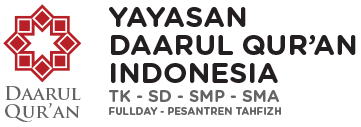By Mr. Darmawan
As a religion, Islam teaches us to be life-long learners and to seek knowledge for as long as we reside on the Earth. Not only is seeking knowledge a religious and moral obligation, it is a continuous obligation.
No other religion or institution gives as much importance to knowledge as the religion of Islam. The religion has made seeking knowledge incumbent upon all Muslims and has deemed that not doing so as a sin. The Prophet Muhammad SAW (may the mercy and blessings of Allah be upon him), said in an authentic narration (hadith):
“Seeking knowledge is an obligation upon every Muslim.” (Hadith Al-Tirmizi)
This obligation is not limited to a certain gender or social class, but rather it is as much as an obligation upon women and men, the young and the old, and the poor and the rich. Allah has raised the ranks and status of those who have knowledge, and has praised them in many places in the Quran. Allah says:
“Allah increases the position of those who believe and those who have been given knowledge many levels.” (Quran 58:11)
There is a great difference between a Muslim who has knowledge and one who does not. The Prophet described this in his saying:
“The excellence of a scholar over another (ordinary) worshipper is like the excellence of the full moon over the rest of the heavenly bodies.” (Hadith Abu Dawud)
He also said:
“The excellence of a scholar over another (ordinary) worshipper is like the excellence of me over the least of you.” (Hadith Al-Tirmidzi)
Why has Allah given such preference to those who have knowledge to those who do not? The role of the Prophets was to impart knowledge to the creation, knowledge directly from our Creator, about His Self and Attributes, as well as how humans are to please Him and avoid His anger. Here we see the importance of knowledge in the life of a Muslim. In order that He worship Allah correctly, do deeds which please Allah and avoid what angers Him, the Muslim must seek knowledge. If they do not, they will live their entire lives doing things which might actually oppose the teachings of the religion, causing him to earn the punishment of Allah instead of His forgiveness.
What Should I Learn?
So the question arises, if it is an obligation to seek knowledge of the religion, and the fields of knowledge within the religion are so vast, what type of knowledge is obligatory to seek? Imam Ahmed bin Hanbal, a great scholar of Islam, answered that it is obligatory for every Muslim individual to seek that type of knowledge which will allow him to practice his religion properly. The following are examples:
1) Islamic beliefs. This is by far the most important aspect of the religion a person must learn, for through this aspect a person actually becomes Muslim. The first thirteen years of the Prophet Muhammad’s call was devoted to correcting people’s beliefs about Allah, emphasizing that no worship was to be directed to any but Him Alone, while only a few of the other commandments were revealed at that time.
2) The knowledge of the obligatory aspects of worship. As we know, Allah has commanded Muslims to perform certain acts of worship. Many of these acts are obligatory and, in turn, one must know how to perform them. For example, Allah has obligated upon us to pray a minimum of five times per day, so it becomes obligatory upon us to know how to pray properly, bearing in mind what is permissible and impermissible for us to do during the Prayer. Also, as one of the conditions of the Prayer is to purify oneself, a person must know how to do so. This also holds true for the rest of the commandments of Allah.
3) Knowing what is permissible and impermissible in daily life. By the Mercy of Allah, He has encouraged us to enjoy a countless number of bounties which He created. At the same time, He has also warned us from certain things due to the physical or spiritual harm resulting from their indulgence. It then becomes obligatory for us to learn these aspects of the religion so that we may not intentionally commit or accidentally fall into these impermissible acts. An important note to mention is that Muslims must be sure they learn those rulings related to their field of work, whether it be medicine, trade, law, or any other field, in order that they carry out their work according to the guidelines of the religion.
4) Last but not least, as a member of Daarul Quran big family we must also learn how to purify our hearts and deeds from blameworthy traits. Muslims must know how to purify their hearts from the love of wealth, status, and fame, and how to make one’s love for Allah alone. They must also learn the lofty manners taught to us by the religion of Islam, and try to pattern our lives according to Prophet Muhammad SAW as the best example for mankind.

